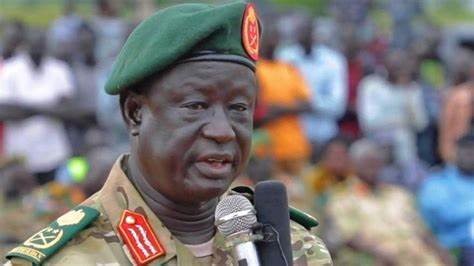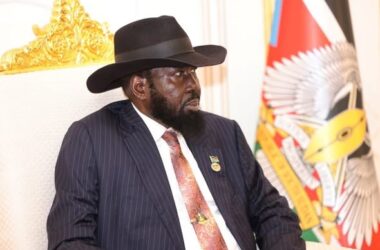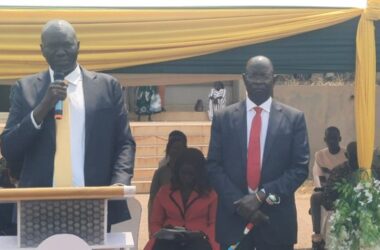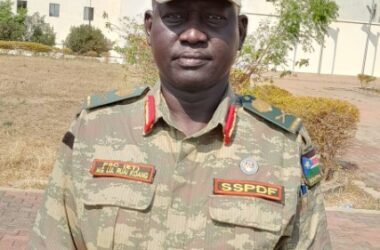By Yiep Joseph
President Salva Kiir on Wednesday relieved Director General of the Internal Security Bureau of the National Security Service (NSS) Gen. Akol Koor Kuc and appointed him as governor of his home state, Warrap.
In a decree broadcast on the state-owned South Sudan Broadcasting Corporation (SSBC), Akol replaced Kuol Muor Muor, who is also a member of the security service.
Although the appointment of the security detective into a civilian role seems normal, residents in Warrap State expressed several opinions, with most hoping for immediate stability in the area.
In an interview, Akol Mathiang, a native of Warrap State, expressed that due to the various skills acquired in the intelligent office in Juba, Akol Koor would be able to initiate effective solutions to the ongoing conflict in the state.
“General Akol Koor has worked for a long time in national security, and I hope he will be able to use such experience to identify the exact problem in Warrap State and bring peace and stability,” Mathiang said.
He reiterated that although many people feared him (Akol Koor), he remains an officer who always works for people in the country.
Mathiang said that what the residents of Warrap need to cooperate with the new governor and work toward peace and stability.
Although several army generals have been appointed to lead Warrap state and insecurity persists, Mathiang claimed that Akol Koor would be exceptional.
Sarah Ibrahim, deputy chairperson of the Civil Society group in Warrap State, said that the civil society sees the appointment as normal as the previous governors.
“It is just like the appointment of the other previous; however, we all hope that Warrap State becomes stable with human rights being respected by the authorities,” she said.
The activist said most governors follow a similar route of leadership, and hence their success or failure cannot be predicted at an early stage.
However, Makur John stated that Kiir’s decision to assign Akol was not appropriate as Warrap experienced internal conflicts.
He claimed that communal conflict does not require a security spy but a diplomat who can use necessary peaceful means to bring both the criminals and communities together.
“I think the current situation in Warrap does not require the president to appoint a detective. I suggest normal politicians who may prioritize dialogue over brutal punishment,” he said.
He reiterated that as security spies focus on classified and unclassified information, communities need every piece of information subjected to consumption in every dialogue.
Makur said that the appointment of the security officers may not be a solution for Warrap State unless he is briefed and coached on how to handle civilians.
“Being a governor is difficult; communities are not politicians; you punish one with brutal punishment like killing; they take revenge, and it continues; it just needs dialogue, which is why I prefer civilians to lead us,” he said.
Meanwhile, Nyibol Zechariah, another citizen said that if the former security chief accepts his appointment, then he would be able to deliver.
“If Akol accepts to lead his people at the state level, he can deliver, unless he was just appointed without consultation,” she said.
Nyibol added that Warrap State continues to experience several changes with many governors appointed from the military background.
She mentioned that most people in the national government fear General Akol while communities see him as a son.
“People fear him (Akol) so much in Juba while people in Warrap see him like a son, and peace and stability cannot come because people fear him,” she said.
She called on the communities in Warrap State to accept peace before they are forced.
“My appeal to my people in Warrap is that let us accept peace and stay as a family before someone uses force in the name of peace,” she said.
Revenge attacks and intercommunal conflicts, stemming from various causes, continue to be a significant source of instability in Warrap state, persisting despite multiple changes in top state officials, especially the governors.




